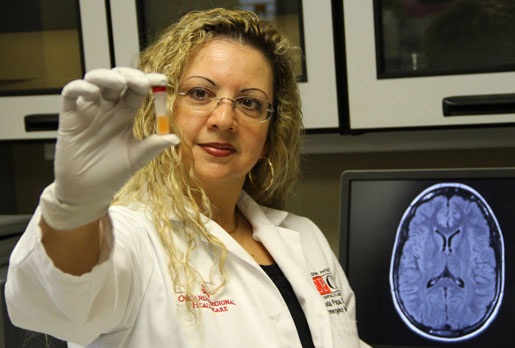Concussion symptoms aren’t always immediate, but study results have shown a particular biomarker can be found in a patient’s blood for as long as a week.
March 31, 2016

Traumatic brain injuries, including concussions, have gained widespread attention in recent years as their impact on athletes of all ages has been studied more closely. One common problem with concussions is that the classic symptoms like headaches, vomiting, and dizziness don't always show up right away.
Now, new research in trauma patients has shown that the glial fibrillary acidic protein (GFAP) biomarker can be found in the bloodstream for at least seven days following the head injury. The 584-patient study, "Time Course and Diagnostic Accuracy of Glial and Neuronal Blood Biomarkers GFAP and UCH-L1 in a Large Cohort of Trauma Patients With and Without Mild Traumatic Brain Injury," published in JAMA Neurology this week, showed that GFAP detected mild to moderate TBI (MMTBI) as well as intracranial lesions seen on head CT scans and neurosurgical intervention out to seven days.
"We have so many diagnostic blood tests for different parts of the body, like the heart, liver and kidneys, but there's never been a reliable blood test to identify trauma in the brain," Linda Papa, MD, MSC, an emergency medicine physician at Orlando Health and lead author of the study, said in a media release. "We think this particular test could change that."
Get inspired to innovate during Massachusetts Medtech Week--register for BIOMEDevice Boston 2016, April 13-14. |
GFAP and another biomarker, ubiquitin C-terminal hydrolase L1 (UCH-L1) were studied. Researchers found that although both biomarkers were found in the bloodstream an hour after the head injury, UCHL-L1 peaked at 8 hours after the trauma before declining quickly while GFAP peaked at 20 hours post-injury and declined more slowly over three days.
The study authors wrote, "It is common for patients who have had a concussion or mild TBI not to seek immediate medical attention. Therefore, understanding the behavior of these biomarkers over days after injury is important for detection of injury in those who may only seek medical care several days after injury."
Traumatic brain injury has attracted attention from large players like NFL, GE, and Under Armour, which started the Head Health Challenge together in 2013 to incentivize work on the prevention, diagnosis, and treatment of brain injury.
[Image courtesy of ORLANDO HEALTH]
About the Author(s)
You May Also Like


